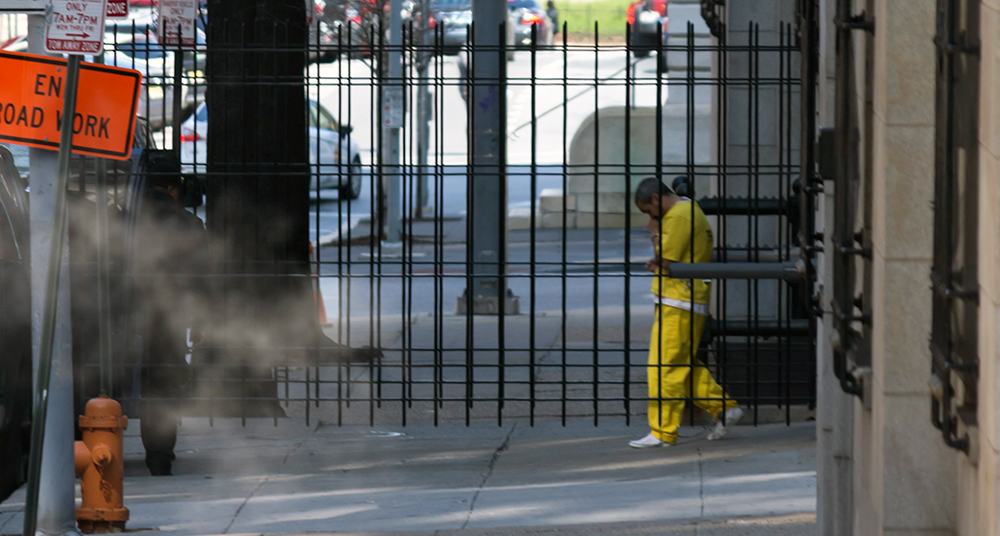By Len Lazarick
Democratic leaders have agreed to reduce Maryland’s high estate tax by recoupling it to federal standards for taxing a dead person’s assets. The “death tax” is considered one of the reasons that wealthy retirees choose to leave Maryland for states with lower taxes.
“We’re going to phase out the estate tax,” Senate President Mike Miller not quite accurately told a conference of the Maryland Economic Development Association Thursday, “and raise it to the federal level.”
“I hope we’re going to move forward on the inheritance and estate tax,” Miller said.
House of Delegates Speaker Michael Busch, speaking on the same panel of Assembly leaders, said, “I think we have to recouple with the federal government … I think it is a fairness issue.”
The move would have cut Maryland taxes by $14 million this fiscal year and by as much as $87 million four years from now. The estate and inheritance tax represents less than 2% of all Maryland revenues, about $227 million this year. Very few estates actually pay any taxes.
Only 14 states tax estates
Maryland is one of only 14 states that taxes the assets left by deceased residents, and one of only seven states that taxes inheritance, the levy heirs must pay on the money left to them, according to an October report by legislative staff. New Jersey and Maryland are the only two states that impose both a tax on the deceased’s assets, and a tax on any money given to heirs.
Maryland now taxes estates worth over $1 million at 16%. The federal government now excludes the first $5 million of estates from taxes, but takes 40% of anything over that.
Maryland and other states had long followed the federal standards on estate taxes. In 2002, as Congress sought to reduce federal death taxes, Maryland chose to “decouple” its estate tax from the higher federal exclusion.
Gov. Martin O’Malley said Thursday he hadn’t considered any change in the estate tax, but “I’m glad to talk with them [Miller and Busch]” about it. He would like to see “some compelling evidence that we’re losing more than we gain” by taxing estates differently than the federal standard.
In 2012, O’Malley signed legislation setting the estate limit on family-owned farms at $5 million.
Senate Republican Leader David Brinkley, who is a financial advisor, said, “I applaud the idea of trying to recouple with the federal government.” House Minority Leader Nic Kipke said he was “happy to hear about reducing taxes.”
House Republicans are proposing to cut personal income taxes by 10% this year.







There is no evidence that cutting the estate tax will spur economic development. No evidence whatsoever. This is a myth (or lie) to justify handouts to the super rich. The estate tax exemption in Maryland is already at $1 million, and $5 million for farms, so only the very richest people are affected by the estate tax.
First, we do not want to stop the rich from leaving MD because they do not seem to offer any value and they take an unprecedented amount of control of MD public policy. If all of MD’s wealthy left, do you think we would have a public sector with the public actually attending meetings and allowed to speak and develop policy? I think so and that would be a good thing.
These last years we have seen almost two dozen taxes and fees almost all of which are aimed at the middle-working class. As a progressive I want taxes and revenue to support a strong public sector but I know why we are seeing so many of these revenues on ordinary people……because corporations and the rich in MD are paying almost nothing and in fact, I would bet some have placed ‘taxes’ in the income column of their accounting books.
Occupy Wall Street generated widespread outcry over the wealth inequity caused by the massive corporate frauds of last decade. Tens of trillions of dollars in corporate fraud still needing to come back and MD was right in there with this. Do you know government watchdogs have estimated every man, woman, and child in the US will receive a few hundreds of thousands of dollars just from recovering that massive fraud? Wealth inequity reversed by simply reinstating Rule of Law! The point to this issue is this….progressive taxation will be the main way of moving back all that fraud to government coffers and people’s pockets so it is counterproductive to lower taxes now.
Are you also running for Governor as a democrat? Sure sounds like it. Don’t you know that despite all of Count Taxula’s tax increases this state will still run a deficit and it’s increasing. He’s not doing it to balance the budget, he’s just spending more. Go ahead and drive out business and then watch what happens. I own and operate a small business which I will be taking out of this state in the near future and I am far from being a 1%er. Back in the 70’s there was a song by the group 10 Years After. In it were the lyrics “tax the rich, feed the poor till there are no rich no more”. A noble thought but as usual liberal/progressives don’t think things all the way to the logical conclusion (what happens to the poor when there are no rich no more).
As a small business owner I can tell you that your assumption of taxes becoming income for business is a fairy tale